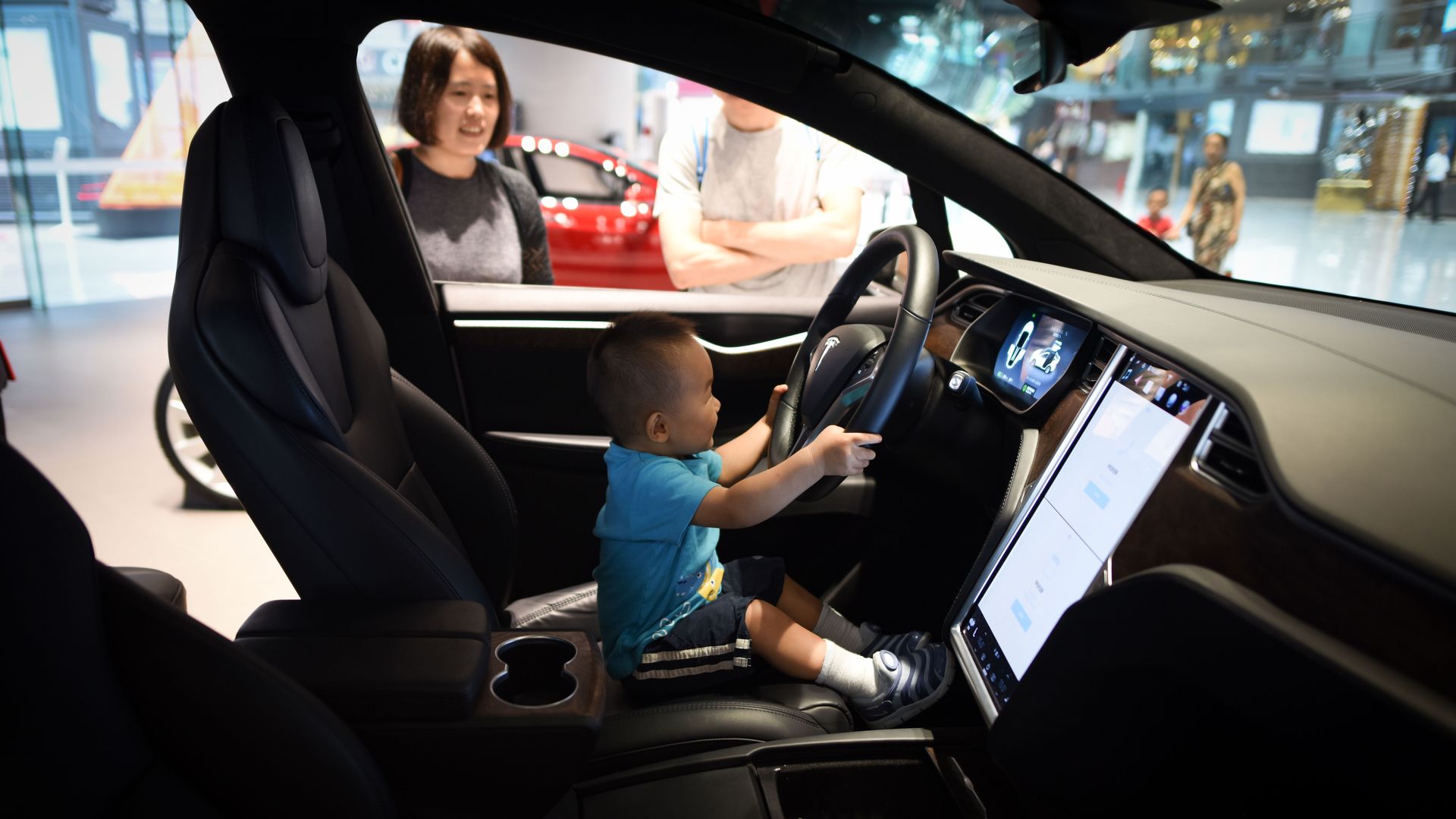
Tesla showroom in China. Photo: Wang Zhao/AFP/Getty Images.
Facebook stayed in the news this week as COO Sheryl Sandberg met with a civil rights group and her story continued to shift on her involvement with a political consulting firm's work. Here are five other stories in tech news this week that may have gotten lost in the Facebook drama.
Catch up quick: Electric vehicles in China are sending real-time data to the government; Instagram is now using AI to describe photos for users with visual impairments; misinformation bots are smarter than we thought; Facebook launched a local news aggregator; and carmakers at the L.A. auto show are pushing their tech, not their cars.
Electric vehicles in China send real-time data to the government (Associated Press)
- Why it matters: Teslas and other electric vehicles in China are sending information about the precise location of cars to the government. The data collection adds "to the rich kit of surveillance tools available to the Chinese government as President Xi Jinping steps up the use of technology to track Chinese citizens," Sinocism's Bill Bishop writes in his Axios China newsletter.
Instagram is now using AI to describe photos for users with visual impairments (The Verge)
- Why it matters: If users do not enter their own "alt text," Instagram will use image recognition technology to write its own description of a photo, then read the description of the photo aloud when someone scrolls by.
Misinformation bots are smarter than we thought
- Why it matters: The studies suggest that bots are getting more adept at gaming social platforms, even as the platforms are making changes to weed them out. Bots are also getting better at avoiding detection. — Axios' Sara Fischer
Facebook launched its local news aggregator "Today In" (TechCrunch)
- Why it matters: “Today In” began testing in January, and is now expanding to 400 small to medium-sized cities in the United States, as well as in Australia. Facebook will have to strike a balance between local news and alerts and its tendency to prioritize popular content. It's also one more avenue that the company have to police for fake news.
At L.A. auto show, carmakers are pushing their tech, not their cars
- Why it matters: The auto industry is moving away from gasoline, steering wheels and personal ownership as cities get more crowded and polluted and people look to avoid the hassles of owning a car. The transition is going to be rocky for many traditional auto manufacturers, as we've seen at GM this week, but the consensus in L.A. is that personal mobility is approaching a tipping point. — Axios' Joann Muller
